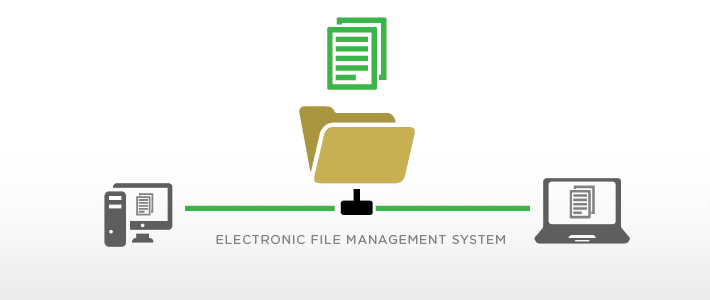Best Facts On Deciding On An Office Relocation Company
Wiki Article
10 Tips About Office Relocation In Terms Of Flexibility Reliability And Dependability As Well As A A Client-Centric Approach
When it comes to moving offices, flexibility, dependability and a focus on the client is essential for ensuring a smooth and successful move. An office relocation that is flexible and reliable as well as focused specifically on customer satisfaction will minimize disruption and guarantee a positive move. Here are ten tips to help you accomplish this.
1. Provide Customized Relocation Plans
Offer bespoke relocation services that are tailored to the specific requirements of your clients. To develop a plan that is aligned with the business goals of your client it is essential to understand the client's needs, preferences timeframes, budget constraints.
2. Keep Open and Transparent Communications
Set up clearly defined lines of communication right from the start. Make sure your clients are informed at each step, starting with the initial plan until the installation. Regular updates can help to build trust, and permit quick changes to be made if there are any problems.
3. Flexible Schedule Options
Recognize that each company operates on a different timetable. Flexible scheduling is crucial in order to avoid disruption of client activities. This includes working after hours or on weekends. Be prepared to react to any unexpected changes.
4. Establish a reliable and efficient project management system
A project manager should be assigned to supervise the process of relocation. This ensures consistency and a high degree of reliability in communication, planning, and execution. One point of contact simplifies coordination and resolves client complaints promptly.
5. Make sure to conduct comprehensive assessment of your site and prepare for the move
Be sure to conduct an extensive evaluation of your current and future office locations. This allows you to identify issues that could arise, such access limitations or handling requirements for sensitive equipment. A well-prepared plan will improve reliability and reduce the likelihood of unexpected problems.
6. Implement an Robust Risk Management Strategy
Be prepared and minimize the risks. This includes preparing for potential delay, equipment failures or unforeseen challenges. For clients to feel secure it is essential to provide insurance protection for damages or losses.
7. Provide Scalable and Adaptable Services
Offer a range of services that are scalable to accommodate demands of the clients. You could offer basic packing and moving services, IT setup, and even complete layout and design for your office. Flexible options for service help meet the diverse requirements of customers.
8. Reduce downtime as much as possible with effective relocation strategies
Plan strategies to reduce downtime. For instance, nightly relocations or phased moves. If you have clients who need to keep their business running this is crucial. Check that key systems such as IT as well as telephony, among other crucial services are operating swiftly at the new location.
9. Concentrate on the Customer Experience
Be attentive and adjust your services in response to feedback from clients. Anticipate client needs respond to client issues and provide outstanding service to make the moving process as stress-free for the clients as is possible.
10. Offer Post-Move Assistance and Follow-up
Help the client following the move, and assist in resolving issues that may occur. Conduct a follow-up to gather feedback from clients and ensure satisfaction. A prompt response to concerns is a sign of reliability and dedication to a strategy that is centered around the client.
Conclusion
A company that emphasizes flexibility, reliability and a customer-centric approach and delivers an effortless experience, will stand out by meeting the demands of every customer. This approach is not only successful in establishing trust, but also helps to build long-lasting relationships and returning business. Follow the most popular office clearence for blog examples including hermanmiller store, furniture office furniture, herman miller second hand chair, used office furniture chairs, chair office herman miller, herman miller furniture company, used office furniture store near me, second hand desk chair, herman miller desks, used embody herman miller and more.

System For Managing Documents: 10 Suggestions To Ensure Security And Comply
Compliance and security are crucial aspects of any document Management System (DMS). A well designed DMS should include strong security features to protect sensitive data and conform to the industry standards or regulations such as GDPR, HIPAA and ISO standards. Here are 10 ways to maximize security and compliance in a DMS.
1. Implement Role-Based Access Control
Check that the DMS is compatible with Role-Based Access Control in order to restrict access to sensitive documents based on their role and responsibility. This can reduce the risk of accessing documents that are not authorized, and ensure that only authorized employees have access to view, delete, or edit documents.
2. Use encryption to protect data at rest as well as in transit
Secure documents during transit and at rest. This will stop unauthorized access, even if the data were to be accessed.
3. Make sure to check Industry Regulations
The DMS must be constructed to meet the specific requirements of industry, such as GDPR, HIPAA or FINRA. To ensure regulatory compliance the system should incorporate options like consent management for data anonymization, data retention and audit trails. policies.
4. Maintain Detailed Audit Trails and Activity Logs
The DMS must maintain audit trails that document the activities of users, including document creation, modification, and deletion. These logs are crucial to track usage, detecting unauthorised activities, as well as ensuring accountability in the event of a security breach.
5. Incorporate Multi-Factor Authentication (MFA)
Allow Multi-Factor Authentication to access the DMS to add an extra layer of security. MFA makes use of a combination of things the user has (like their fingerprint) as well as something they know (like their password).
6. Regularly Update and Patch the DMS
Ensure that the DMS software is regularly updated with the most current security patches and enhancements. Keeping up to date with updates helps to limit vulnerabilities that can be used by cybercriminals to create an enhanced security environment.
7. Install Data Loss Prevention (DLP) Measures
Integrate Data Loss Prevention tools to guard sensitive information in the DMS. DLP tools help to identify and prevent possible data breaches. They do this by preventing unauthorised access to confidential documents, or the detection of any unauthorised transfers.
8. Document Retention and Disposal Policy
Set up automated document retention and disposal guidelines within the DMS to meet legal and regulatory requirements. This will ensure that documents are safely disposed within the time frame specified and kept the length of time needed.
9. Secure Remote Access and Mobile Device Management
To allow for remote work, make sure that your DMS allows secure remote login, and it is incorporated with Mobile Device Management. This safeguards sensitive documents accessed via mobile devices by using security protocols, like remote wipe and encryption of devices.
10. Regularly conduct security audits and compliance audits
Conduct periodic security audits to identify weaknesses or vulnerabilities in the DMS. Regular assessments are essential to ensure the DMS remains secure and safe from emerging threats.
Conclusion
By prioritizing safety and compliance organisations can secure sensitive information, keep the integrity of data, and avoid the financial and legal consequences. A DMS equipped with robust security and compliance features provides peace-of-mind, improves the trust between stakeholders and clients and creates a safe and safe document environment. Read the recommended file management for website advice including dms system, retention schedules, document management system online, system document management, content management enterprise, company document management, documentation retention, document storage system, workflow automation software, document storage facility and more.

What Do You Need To Be Aware Of Regarding International Relocation Services In Terms Reputation And Experience
When selecting an international removal company You should take into consideration the following aspects: expertise, reputation, and compliance. These are essential to make sure that the firm has the ability to manage the complexity of international relocations and offer reliable and efficient service. You can use these 10 guidelines to evaluate an international relocation firm and decide on their criteria.
1. Research Company Reviews and Testimonials
Reviews, testimonials, or case studies of past clients can give valuable insight into the reliability of the company, service quality, and customer satisfaction. Positive feedback can be an indicator of the reliability as well as the quality and satisfaction of a firm.
2. Verify Industry Certifications and Memberships
Verify that the company holds relevant certifications in the industry and belongs to respected organizations like the International Association of Movers (IAM), FIDI Global Alliance or the European Relocation Association (ERA). These affiliations signify adherence to standards and best practices in the field.
3. International Relocation Years of Experience:
Assess the company's global relocation expertise. If a business is able to demonstrate a history, it's likely they have the expertise required to handle complex logistical issues, customs regulations, and other challenges associated with international moves.
Study Case Studies of Relocations that have been successful
Find cases studies or other examples of international relocations that have been handled by the company. This will help you assess their ability to handle all aspects of international relocation, from logistics to destination service.
5. Check for Compliance with International Regulations
Check that the business is compliant with the local and international laws, both in the origin country and the destination. Customs regulations and requirements for visas and immigration, and other legal considerations are included.
6. Verify your insurance coverage.
Make sure to determine whether the firm you're considering has complete insurance coverage for international relocations. Make sure that there's a procedure that allows you to file claims. It is important to have a sufficient insurance policy for your belongings. This will provide assurance and security in the event they are damaged or lost.
7. The Quality of Customer Service
Evaluate the level of support that the company provides. In order to manage the difficulties of international relocations, its important to have a contact person who can give clear and concise information and be responsive.
Review their network across the globe and alliances
Consider the international network and local representatives of your business. A solid global network can improve the efficiency and reliability of the relocation process. It will ensure smooth coordination between countries.
9. Examine for conformity to Ethical and Professional Standards
Verify that they adhere to the highest standards of professionalism and ethics. Transparent pricing, fair business practices, and the respect of confidentiality are all components of this. Moral behavior is positive changes and builds trust.
10. Request clear and detailed Quotes
Request detailed quotations that detail the cost and services of your move. Being transparent with your pricing can prevent any surprises and ensure that you know the costs. Compare prices from different companies to ensure that you're getting the best price.
Conclusion
For a successful international move it is essential to choose a relocation firm by their experience, reputation and adherence. Conducting research on reviews, reviewing the validity of certifications, evaluating experiences and ensuring that the company is in compliance with regulatory requirements will assist you in selecting the right relocation company to ensure your move is handled effectively and efficiently. This will reduce the stress and hassles. Read the most popular this post on international removal companies for site examples including interstate moving and relocation, moving and relocation services, international relocation movers, removalists, moving company sydney, relocating overseas shipping, office removals, removal companies, interstate moving and relocation, household removals and more.
